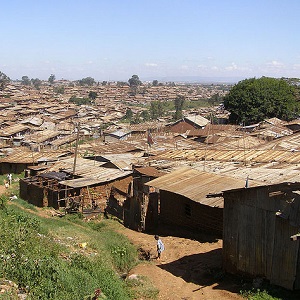Blog, International Conflict
Conflict, fragmented: The emergence of urban violence in Africa
By Kyong Mazzaro Warfare in Africa has declined significantly. After the surge of violence in the continent during the 1990s, conflict and fatalities in 2013 were 87 per cent lower than the 1990-1999 average (Burbach & Fettweis, 2014). The prospect of a more peaceful Africa has been seen as an opportunity for the promotion of economic growth and governance in the region. This optimistic forecast rests on the assumption that the political transformations following the end of civil conflicts will indeed lead to peaceful societies. However, current levels of internal violence in the continent raise the question of how post-conflict societal changes have impacted the development of the region. A recent study on the effects of changes in political institutions in African countries argues that civil war may have declined, but only to be replaced by emergent patterns of violence in urban centers (Raleigh, 2015). African urbanization has been characterized by its failure to provide large proportions of the population with access to basic services and safety: in sub-Saharan Africa alone, 72% of the total urban population lives in slums. Along with urban poverty, democratization processes have been found to be open to ethno-religious interests while excluding interests and grievances of disenfranchised groups in urban centers. Looking at all African states from 1997 through 2013 and location-specific data on conflict rates and conflict types, including political violence, rebel attacks, and protests, in her study Raleigh found that national changes in political institutions are the best predictor of higher rates of urban violence in Africa. The conditions of unplanned and underdeveloped urban spaces, limited access to public services, political discrimination, and large-scale urban poverty are directly linked to an increased risk of violence in African cities.
Although the percentage of the population living in urban centers in Africa is low (35%), it is expected that by 2030 50% of the population will live in cities. Rapid urbanization has increasingly been associated with rising levels of urban violence in the form of gender and civil violence as the result of informal and insecure urban spaces, clashes around the dismantling of illegal settlements by government forces, and protests due to lack of employment, inflation, ethnic, and electoral issues, to name a few. As African urbanization and democratization processes run their course, research on the links between state capacity, marginalization, and violence will be essential to ensure the sustainable and peaceful development of the region.
Sources: Image: Flickr user Lorena Pajares Burbach, D. T., & Fettweis, C. J. (2014). The Coming Stability? The Decline of Warfare in Africa and Implications for International Security. Contemporary Security Policy, 35(3), 421-445.
Raleigh, C. (2015). Urban Violence Patterns Across African States. International Studies Review, 17(1), 90-106.
Categories: Blog, International Conflict
Published October 2, 2015
